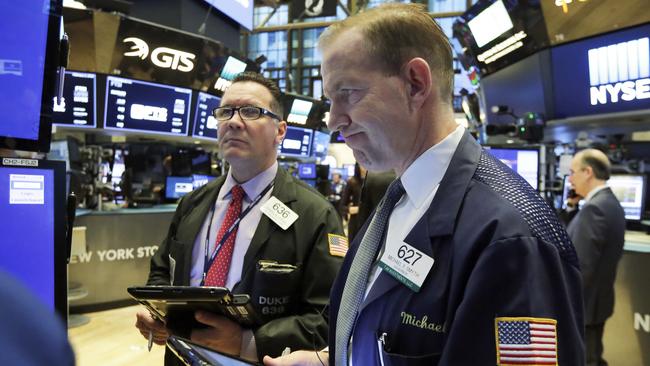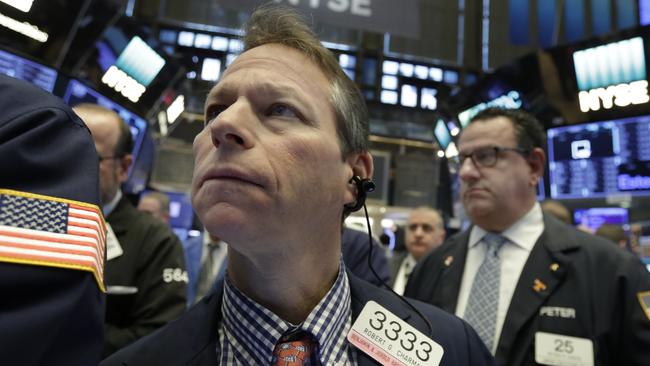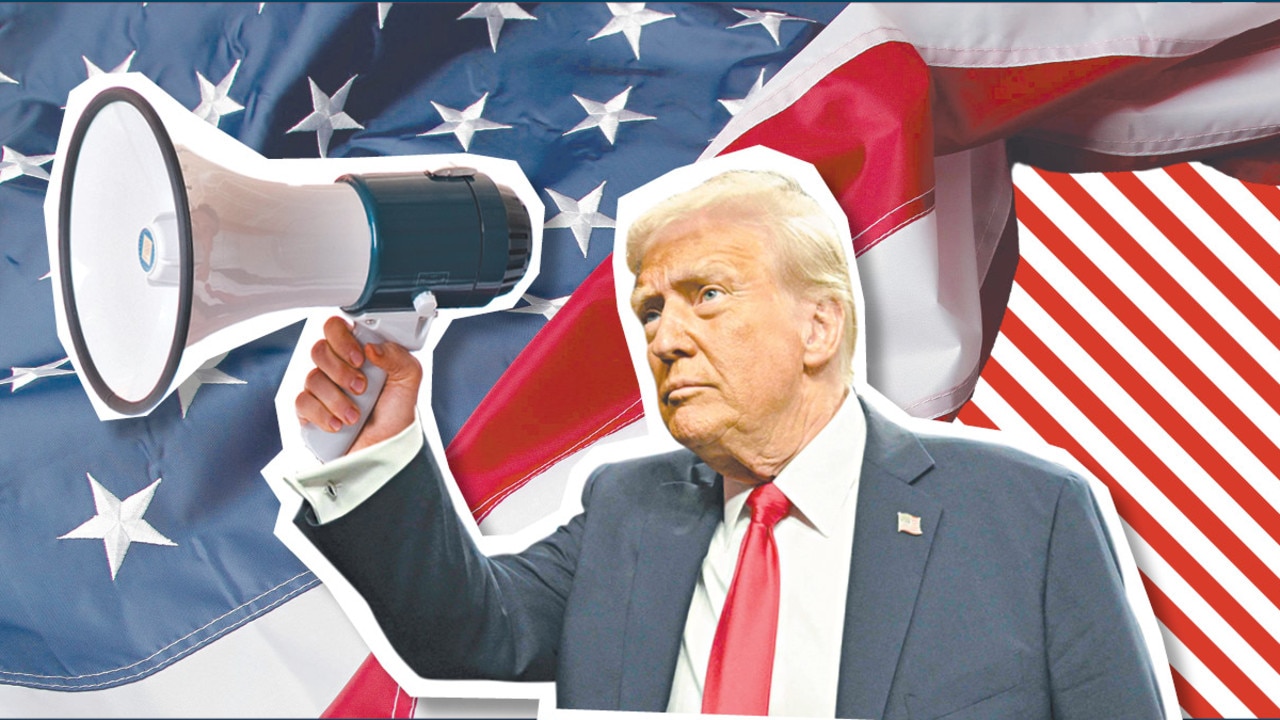Dow Jones suffers 2.5pc fall on rates fears
Wall Street index falls 650 points in a session, in its worst week since early 2016, as investors worry about rising rates.

Concerns about rising interest rates pounded financial markets on Friday as investors started to take the threat of inflation more seriously, a sharp shift from the sentiment that has characterised most of the stock market’s nearly nine-year bull-market run.
Investors sold stocks, bonds and commodities, pushing the Dow Jones Industrial Average down more than 650 points on Friday local time, or 2.54 per cent, for its worst week since early 2016.
The yield on the benchmark 10-year Treasury note climbed to its highest level in more than four years.
Rising bond yields drove big swings in stocks in recent days as volatility returned to the market. When yields go up, it costs companies more to borrow money and can trigger fears that the Federal Reserve may need to raise interest rates more quickly to keep up with inflation.
During the years-long rally, easy money policies pushed investors away from the paltry returns offered by government debt and into stocks, even after some analysts began to warn that shares were looking relatively pricey compared with historical averages.
The Dow Jones Industrial Average posted a 4.1 per cent decline this week, its biggest drop since January 2016, when steep falls in Chinese equities spilled over to global markets. Meanwhile, the yield on the benchmark 10-year Treasury note rose to 2.852 per cent, the highest level since January 2014. In contrast Australia’s benchmark S & P/ASX 200 share index closed up 0.51 per cent to end at a three-year high of 6121.4 points. The Australian dollar fell back below US80c, to be trading at US79.3c on Saturday afternoon.
“People are questioning the conditioning that every dip will be bought,” said Mohamed El-Erian, chief economic adviser at Allianz, referring to both the bond and stock market. He added that the global economy continues to be strong, but he expects this pickup in volatility to continue.

Many investors and analysts embraced the newfound volatility, calling it healthy after the swift — and likely unsustainable — stock-market rise that ushered in the new year.
The Dow industrials rose 5.8 per cent in January, as strong economic and corporate earnings growth invigorated investors, who poured a record $US100 billion ($126bn) into equity funds in January, their biggest monthly inflow on record, according to fund-tracker EPFR Global.
“Do I think stocks continue to rise at their same pace? Absolutely not,” said Kate Warne, investment strategist for retail brokerage Edward Jones. “I think stocks will continue to rise, but it’ll be a much more volatile ride.”
The Dow posted two moves of at least 1 per cent this week, compared with 10 in all of 2017. The Cboe Volatility Index, which measures expected stock swings over the next month, is on track for highest close since November 2016, when jitters around the US presidential election escalated.
The recent volatility continued Friday following the January US jobs report. Wage growth accelerated, rising 2.9 per cent over the past year, the strongest year-over-year gain since June 2009, according to the US Labour Department. US Government bond yields rose as investors interpreted the wage gains as a sign the tightening labour market may finally trigger higher inflation.
The Dow industrials fell 2.54 per cent Friday, while the S&P 500 lost 2.1 per cent and the Nasdaq Composite dropped 2 per cent.
The downturn spread to commodities as well, with gold falling 0.8 per cent to $US1333.70 an ounce and U.S.-traded crude dropping 0.5 per cent to $US65.45 a barrel.
Some traders said the dour mood around stocks and bonds was amplified by Friday’s political developments. House Republicans released a controversial memo alleging bias by the Federal Bureau of Investigation during its Russia investigation.
Still, many other investors said the stock market is likely to remain strong due to a brightening earnings picture. Analysts’ projections for US earnings in 2018 have been upgraded significantly over the past month following changes to the US tax code, while results for the fourth quarter have largely exceeded analysts’ expectations.
“I don’t see much panic out there,” said David Kelly, chief global strategist at JP Morgan Asset Management.
The real danger for stocks was not Treasury yields climbing above 3 per cent, but a recession, he said, adding that as long as central banks maintain their slow and steady pace of rate increases and corporate earnings remain solid, he did not foresee a recession in the near future.
Corporate results drove many of the Friday’s biggest share moves. Earnings from US technology giants late Thursday were mixed. Shares of Amazon.com climbed 3 per cent after its quarterly profit topped $US1 billion for the first time.
Apple shares fell 4.4 per cent after reporting a slight drop in iPhone sales but overall beating expectations. Meanwhile, Google parent Alphabet edged down 5.3 per cent after posting weaker-than-expected earnings, even when stripping out a big one-time tax hit.
Exxon Mobil and Chevron helped drag down the Dow industrials, falling 5.1 per cent and 5.6 per cent, respectively, after reporting profits that missed expectations, despite the recent rally in crude prices.
In Europe, shares of Deutsche Bank fell 8.5 per cent after it reported a sizeable loss for the fourth quarter and its third consecutive full-year loss. The Stoxx Europe 600 fell 1.4 per cent, ending the week down 3.1 per cent, its biggest fall since February 2016.
Japan’s Nikkei Stock Average closed down 0.9 per cent following earnings-related news from Airline ANA and investment bank Nomura.
The Shanghai Composite Index edged up 0.4 per cent but still ended its worst week since December 2016.
Dow Jones Newswires


